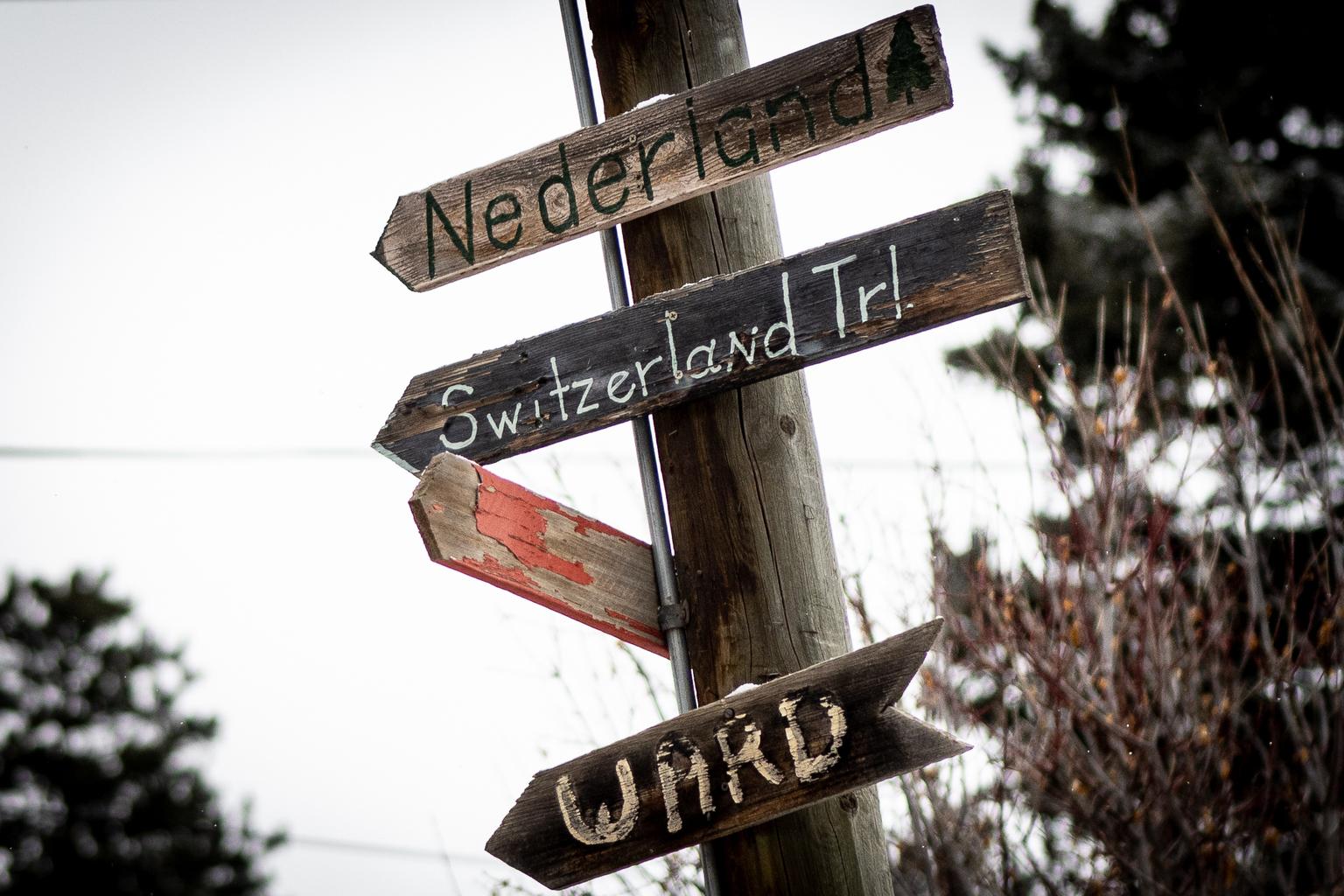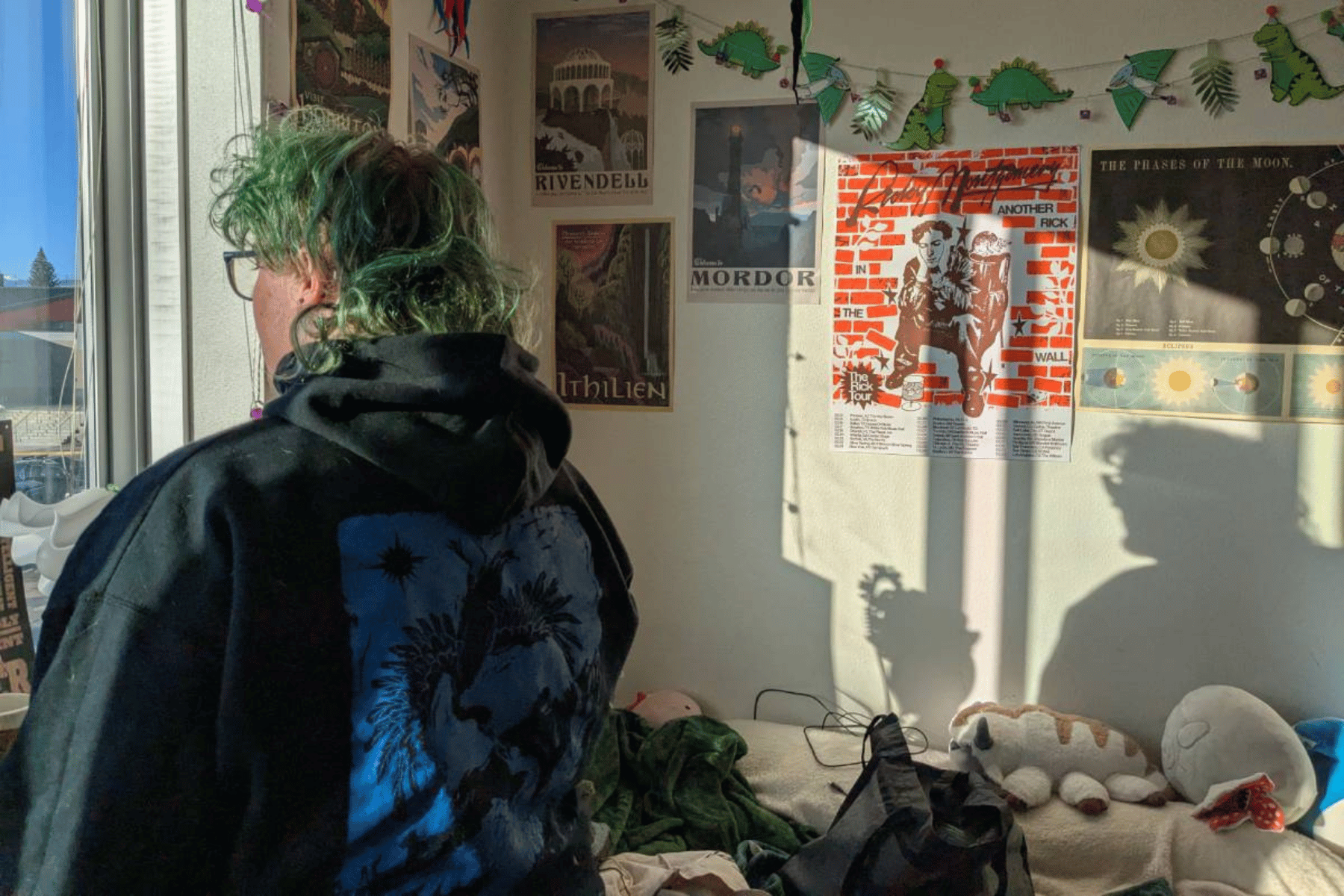In his latest budget proposal, Colorado Gov. Jared Polis requested $7.2 million to begin transitioning the state away from private prisons. A big part of that plan was to close the Cheyenne Mountain Re-entry Center in Colorado Springs. It’s a medium security facility run by the GEO group, one of the largest prison companies in the country.
“Studies done in several states have shown that recidivism is about 10 to 15 percent less with public prisons than it is with some of the for-profit private prisons,” Polis said in justifying his decision during a budget press conference last year.
There’s no solid evidence to back up those numbers across the board, but either way, in January, the GEO Group informed the Colorado Department of Corrections that it would end its services at Cheyenne Mountain in early March—several months before its contract with the state was set to expire.
“I was not surprised that the contract failed because we knew it was going to fail for a very long time,” Dean Williams, director of the Department of Corrections, said. “What I was surprised about was that they sent me a 60-day notice.”
"Since that announcement, and related legislative hearings, we have experienced challenges in retaining and recruiting staff at CMRC." - Brian Miller, spokesperson for The Geo Group
The GEO Group said it would work with the DOC to develop a transition plan. The private company wasn’t available for an interview, but in a statement spokesperson Brian Miller said, “Since that announcement, and related legislative hearings, we have experienced challenges in retaining and recruiting staff at CMRC.”
Williams doesn’t buy that.
“My staff talked to me very early on about the problems at Cheyenne Mountain. And that's no disrespect to the company,” he said. “But the reality is there've been problems there for a while and even before I got here.”

Williams lists long-existing issues such as a high turnover rate leading to chronic understaffing, which in turn, he says, led to the prison to temporarily lose its license for rehabilitation programs. What’s more, Williams says the GEO Group was steadily losing money.
“I don’t blame them for making a business decision,” he said. “However, these prisons don’t make money. So the problem with dealing with private prisons and private entities like that is that eventually, if it's not profitable for them or it's too much trouble than what it's worth, then they would bail.”
Vance Roper, a legislative analyst for the Colorado Joint Budget Committee, didn’t agree with the governor’s budgetary reasons for ending GEO’s contract.
"I would say there is blame on all sides for this problem, quite clearly." - Vance Roper, Legislative Analyst for Colorado's Joint Budget Committee
“I would say there is blame on all sides for this problem, quite clearly,” Roper said during a committee meeting soon after GEO’s early pullout. “The department is going to have to adjust to those realities.”
Those realities include relocating roughly 650 male inmates.
“To be quite frank, the department does not have the ability to absorb these individuals into beds,” Roper said.
"To be quite frank, the department does not have the ability to absorb these individuals into beds." - Vance Roper, Legislative Analyst for Colorado's Joint Budget Committee
Some are set to be released before March anyway. Others have already been relocated to various state facilities. But there are still hundreds left to account for. And none of the options are easy.
“They could try to transfer people out of state,” Roper said. “But they don't have the funds to do that, and it is more expensive than any other option they have.”
Another option is keeping people backlogged in jails. But Roper says that’s clearly not a great or long-term solution either. And he says asking the parole board to release more people out on parole would essentially be “letting pressure dictate the safety needs of the department by releasing people,” as he said during that committee meeting.
If the state tried to take over the Cheyenne Mountain facility, they’d have to buy or lease the building from GEO Group, as well as hiring all new staff, and that could be costly.
The most viable idea on the table at the moment, according to the Department of Corrections, is to move some inmates to a previously shuttered state prison designed for solitary confinement in Cañon City. It’s known as Centennial South or CSP II.

Williams, head of the DOC, says reopening portions of that facility was part of Gov. Polis’s original plan.
"I don't like it, but we have a plan for it. I'm gonna need help from the legislature, quite frankly." - Dean Williams, Director of Colorado's Department of Corrections
“I don't like it, but we have a plan for it,” he said. “I'm gonna need help from the legislature, quite frankly.”
He says he would need the legislature to fast-track approval for the number of beds he would need there. But even if that happens, the system will still be dealing with too many prisoners and not enough beds.
Plus, Williams says, even if those new beds were to open up, shuffling prisoners around is not that simple.
“It's not like putting eggs in an egg carton, right? That, ‘Oh, any old egg here can go in any old spot in the egg carton.’ These are different classifications of prisoners. I can't put a low level, low risk, relatively minor-offending guy in a high-risk prison situation and call it good.”
And he says the opposite is true. He can't take a high-risk prisoner and move him to a lower security facility.
He says the problem is compounded by the fact that the city of Denver recently ended its contract with GEO for the two halfway houses the company had operated there, leaving fewer community corrections beds available to absorb any overflow.
The result, Williams says, is that it’s very likely some inmates will end up in “sled beds.” He describes them as plastic beds that look like sleds that go on the floor of an existing inmate’s cell.
“These beds are not bolted down and they can be used as weapons,” he said. “You have people who can jump off a bunk bed onto the people on these beds, which causes fights in cells and overcrowding in cells and create overcrowding in prisons, which leads to very, very bad problems.”
Williams says all of this highlights the problems private prisons can create for states.
“The issue has been all along that if you’re going to privatize anything like a correctional system, any portion of it, that you’re going to have a vulnerability there,” he said.
"The issue has been all along that if you're going to privatize anything like a correctional system, any portion of it, that you're going to have a vulnerability there." - Dean Williams, Director of Colorado's Department of Corrections
He acknowledges Colorado has not had the same issue with the other two private prisons that contract with the state run by the company CoreCivic. But he believes relying on for-profit companies to take over prisons completely can be risky.
“What's in their interest may not be in Colorado's interest,” said. “That's maybe, perhaps, one of the lessons to learn here.”
This story was produced by the Mountain West News Bureau, a collaboration between Wyoming Public Media, Boise State Public Radio in Idaho, KUER in Salt Lake City, KUNR in Nevada, the O’Connor Center For the Rocky Mountain West in Montana, and KRCC and KUNC in Colorado.









